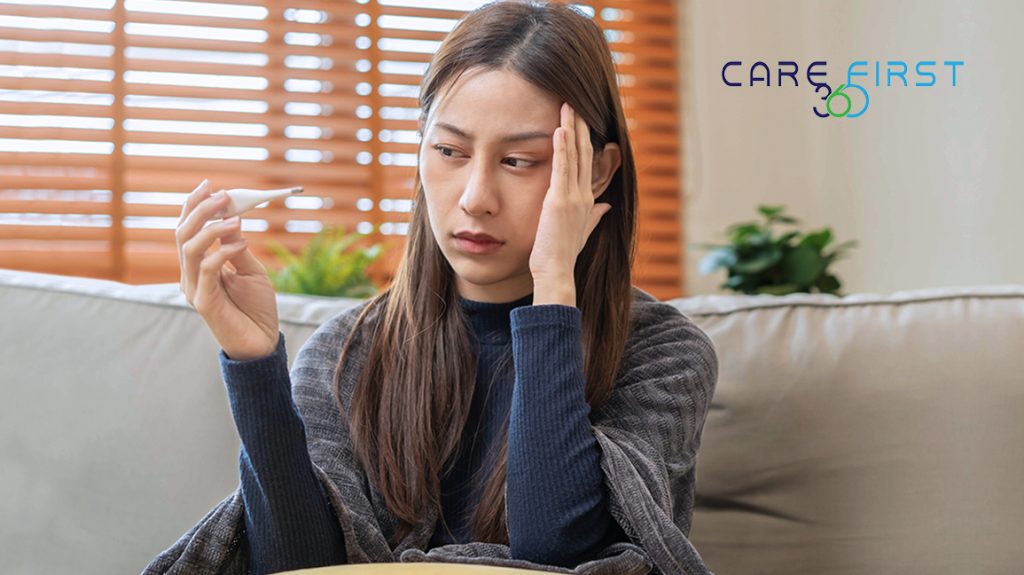Is the occurrence of fever after vaccination good or bad?
Vaccination is very important; it can help in the complete eradication of a disease. However, you may get a fever after vaccination. Is it good or bad? When should you consult a primary care physician? This article answers all these questions in detail.
How do vaccines work?
A vaccine is a biologically prepared substance used to improve immunity against a particular infectious disease. It typically contains weakened or killed forms of microbes (generally bacteria or viruses), toxins of the microbes, or a surface protein of the microbe. Vaccination stimulates the immune response in your body to produce antibodies, so that your immune system recognizes the agent as a foreign substance, and destroys it.
A vaccine is deliberately administered to empower you with the ability to fight future infection with efficiency so that you do not experience the disease.
Side effects of vaccines
Vaccines are mostly safe, and there is extremely little chance that they will cause any harm to your child. The side effects of vaccines are generally nominal and subside within a few days. The common side effects of vaccines include –
- Fever
- Irritability
- Redness, swelling, and tenderness at the site of injection
- Headache
- Tiredness
- Nausea
In less frequent cases, vaccines might be associated with vomiting, diarrhea, joint pain, or muscle pain.
Fever after vaccination- good or bad?
Many children develop a fever after vaccination, causing their parents to worry. Fever is common after immunization; a little fever after vaccination helps your child’s immune system to fight infection. So, you do not need to worry about the fever. You can skip medications to treat a fever unless it is causing much discomfort to your child. Before opting for medications, you can try the following measures-
- Take good rest for a fast recovery
- Drink enough fluids, as during fever your child will lose fluids through sweating, or runny nose. Fluids are also required to tackle infection, so it is important to replace the fluid as much as possible. Give your child loads of fluids, in the form of water, breast milk, formula, or fruit juice.
- Dress lightly so that the body can release the temperature, but also keep her warm when shivering.
- Keep the air in the room moist and cool, by using a humidifier.
Use medications like analgesics and antipyretics essentially formulated for the babies, if the fever goes above 101 degrees F, and the child is feeling miserable. Use the minimum recommended dose only. You must be cautious about double dosing, as some components may be commonly found in some medications. Hence, be sure that your baby is not getting that component from some other medicinal source. Some children might experience a seizure if the temperature rises fast. The condition is called a febrile convulsion and doesn’t happen commonly. Seeing your baby undergoing a seizure can make you panic, but it generally does not cause any long-term health effects.
Consult a primary care physician if you notice the following symptoms associated with fever after vaccination –
- Extreme tiredness, which makes the baby sleep all the time
- Pain in the stomach, ears, or limbs
- Difficulty in swallowing fluids
- Vomiting or diarrhea, with high fever
- Fever refuses to go even after 3 days, and the condition becomes worse
Vaccination rarely causes serious harm. The mild side effects of vaccines are always more welcome than actually suffering from the disease. So do not avoid vaccinating your baby thinking of the temporary, harmless side effects. Protect your child from dreadful diseases by giving her all the recommended vaccines on time. You should only stay away from vaccination on medical advice, like when the baby’s immune system is too weak due to some other reason.
Seek a primary care service near you
In case you are having fever after vaccination, schedule an appointment with CareFirst 360 right away for primary care service. Our primary care physicians will assess and recommend the appropriate treatment that works for you. However, make sure to gift your child lifelong protection against at least some of the diseases.

